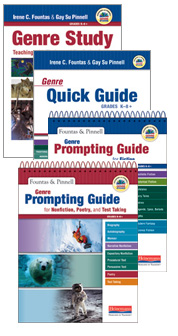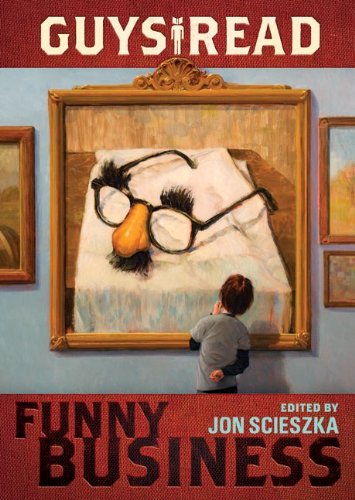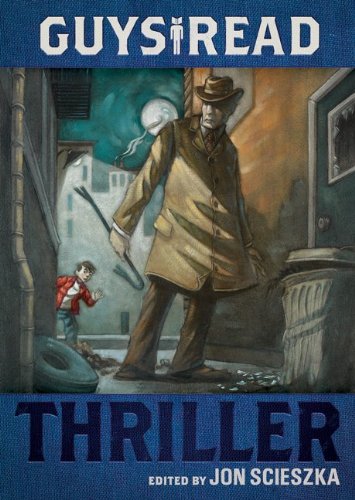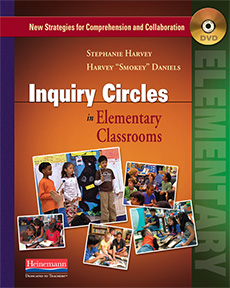I have learned so much from my year and 1/2 long training to become a literacy coach at the intermediate level. Now, it was time for my ongoing training that will happen every year in January for my continuing professional development at Lesley University. At first, I felt somewhat intimidated being in a large room full of literacy coaches, who have so much more experience than I have, being that I'm only in my field year. However, it was easy to quickly warm up to everyone and get into the swing of things. I was so excited to get a chance to have a day long workshop with Irene Fountas, as well :) The week flew by and I'm so excited to share some of the great things that I have learned! Where do I begin?
Here are my TOP 10 experiences from my trip to Boston:
1. Genre Study- We received the bundle of Genre Study by Fountas & Pinnell. It is their newest addition to their plethora of professional development resources. The bundle published by Heinemann comes with the textbook Genre Study, the Quick Guide, the Prompting Guide for Fiction, and the Prompting Guide for Nonfiction, Poetry, and Test Taking. I'm so excited to dive in and try out some genre studies in my classroom next quarter. Where to begin?

2. Article, "Guided Reading: The Romance and the Reality": It is always a good thing to get back to your roots and reevaluate your teaching. That is exactly what we did in terms of guided reading. We read the new article that Fountas & Pinnell contributed to the Reading Teacher journal and discussed guided reading as an instructional means to teach reading in small group. It was quite helpful to review the theory and rationale behind the process. Together, we discussed how we could use this article to help our teachers obtain a better understanding of how to use guided reading in their classrooms. See for yourself, by visiting the following link:
3. Reviewing Running Records: Again, getting back to basics. I always find it helpful to review the process of taking a running record, analyzing, and discussing together in a group setting, what you would do next as a teacher. For instance, we all listened to a student read, analyzed her reading and her comprehension of the text, and then visited our Continuum to decide where we would focus our teaching if she were our student. I want to do this with my teachers, as well. So much to do, so little time.
4. Coaching statement by Irene Fountas: "This was our best thinking at the time." I believe that this is so powerful. In anything that we do, things change and things evolve. Our thoughts and beliefs are always changing because our understanding is always evolving. That is what being a professional is all about.
5. Looking at the Common Core Standards with Irene Fountas: Once Irene said that we need to look at these standards as goals, it was definitely an aha moment for me, as well as many of my colleagues. It makes so much sense. We get so caught up in teaching these standards, and hoping that our students meet these standards, that I think we forget that they are GOALS! A goal is not something that will definitely be met, but as long as we are striving to get there that is the point; working to meet/obtain that so called goal. While we are on the topic of the CCSS, Irene brought up another great point! Where is the research? Where is the research to support the CCSS? Look at the end of the CCSS, is there any? No, there isn't. So, why do we as a state, as a nation accept them? This is a question that I am still pondering myself. Who says this is best for our students?
Okay, I need a little break...my final five will be added, hopefully tomorrow!










